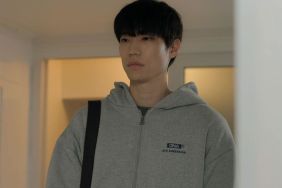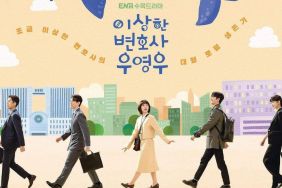Director Morgan Neville has been making music docs for nearly 20 years, but clearly there was a lot of inspiration that went into making 20 Feet From Stardom, a movie that looks at the unsung heroes of the music business–the back-up singers who often go unnamed or unnoticed compared to the more flamboyant frontman? until now.
Of course any movie about back-up singers has to begin and end with Darlene Love whose early work with the Blossoms led her to Phil Spector who turned her into a superstar while also using her vocal prowess to help boost his other acts. And then of course there’s the amazing Merry Clayton, who sang on controversial classics like “Gimme Shelter” and “Sweet Home Alabama,” and Claudia Lennear, who sang in the early days with Tina Turner, Joe Cocker before hooking up with David Bowie and the Stones during their heyday. (She was even thought to be the inspiration for the song “Brown Sugar.”)
And then there’s Lisa Fischer, who had been singing back up live with the Rolling Stones since the late ?80s but began her career as part of Luther Vandross’ singers, got her own solo career going shortly after, won a Grammy, but then returned to back-up singing. The film also features more recent back-up singers trying to break out such as Judith Hill, who was discovered after getting the coveted gig singing on Michael Jackson’s ill-fated final tour but wants to focus on her solo career. (She just appeared on the most recent season of “The Voice” but was recently voted off despite her incredible singing and songwriting talent as displayed in the film.)
ComingSoon.net got on the phone with Neville last week to talk about this incredible film that looks at these amazing women of the music business and their stories, the unsung back-up singers who made songs like Lou Reed’s “Walk on the Wild Side,” the Rolling Stones’ “Sympathy for the Devil” and “Gimme Shelter” and other great classic rock and R ?n’ B songs what they were.
ComingSoon.net: I’m glad I got to see this first at the Paramount Theater in Austin at SXSW–not with the performances unfortunately–but my friend Robert Smith did some of the recording at Avatar and it sounded amazing in that theater so I’m glad I got to see it there first.
Morgan Neville: Oh, yeah! We did the big finale at Avatar.
CS: I’m excited to hear that that the record is coming out this Friday (out now) as well.
Neville: Yeah I’m so excited that’s all happening. I never knew if any of that stuff would happen, but I’m glad it is.
CS: It’s really an amazing film and I know that you’ve been doing music docs for some time, but this seems like a pretty big topic to put all the things you put together for this movie so I wondered what got you started down this road?
Neville: The idea came from my producer Gil Friesen – Gil used to be President of A&M Records and they called him the ampersand in A&M. He was a great guy, knew everybody, cool cat, and he left the industry when they sold A&M to Universal and then went on to do other things but was still personally and emotionally connected to the music business. This idea he got into his head about back-up singers, he thought would make for a perfect film and he thought would be a fun experience. He knew it would take a lot of connections to get it made and he said to me at one point, “I had no idea how much work it was going to be trying to get all these ducks lined up in a row to get a film like this made.” Gil was the king of lunches because he said that people had a hard time saying “no” to you at lunch. He would constantly take people out to lunches and butter them up for this and that. It took a lot of work on his part and my part and everybody’s part to get a film like this made. From a producing standpoint it’s not an easy thing to do.
CS: His name sounds really familiar. I was in the music business myself, that’s how I know Bob, but I worked with acts on A&M so maybe that’s why the name didn’t click when I saw his name in the credits.
Neville: Yeah, he left the label in the early ?90s, too, but Gil instinctively knew there was something interesting for me to experience with back-up singers and he knew some of them but didn’t really know what the film was going to be and we started making it together and we quickly realized all the dimensions and the characters and the music and everything that could be in the film. What I think what struck both of us later was that we both found ourselves identifying with back-up singers. I mean, Gil was the ultimate back-up singer. He spent his career making people stars and never taking credit himself and to the same extent, I made films about other people forever and have labored for twenty years doing this and you know, I think we’re all identifying with our subject in a way that we hadn’t anticipated when we started which was really great. And then, the horrible thing was that Gil got sick and he ended up passing away just weeks before we premiered the film.
CS: Oh, geez, I hadn’t realized that.
Neville: So he had seen the final film, he loved it, he turned his hospital room into an office and had meetings there and he was very hands-on and he was enjoying it and then he passed away in December, then we premiered in January.
CS: Ah, man? but it’s amazing that he got to see the movie done and finished. So how long ago did Gil have the idea and when did he bring it to you?
Neville: Well, the stories he told me about how it actually started was I think he’d gone to a Leonard Cohen concert in the end of 2009 and he said he got stoned and he watched the show and he spent the whole concert watching these back-up singers, because Leonard Cohen always used back-up singers in a really great way, and he was just kind of wondering what their story was and the next day, the thought hadn’t left him and I think he did a little bit of digging and realized that nobody had ever written a book or made a film or put together a website or anything about back-up singers, and he kind of spent a year talking himself into making this film. He said he would have lunch with all kinds of people and say “What did you think about this?” and people would say “Oh yeah” and they’d tell stories and he’d say “Okay, I think I have to do this” and then he said, “well I need a director” and that’s when we went on an arranged data and we hit it off.
CS: The movie definitely comes across as a project made by someone who was clearly obsessed with back-up singers and I assumed that was you, but it was obviously Gil who had that obsession?
Neville: He did, and I think he was really affectionate about it. He actually got to know these women and they’re so warm and community and family oriented that once you get to know them, they would call me all the time. They still call me all the time and I see them all the time and it’s like you’re joining the family. It was just a really wonderful world to enter and so nurturing and that’s kind of what they do. They’re there to share of themselves with the talent and they’re just so generous.
CS: I have to assume the place was going to be Darlene Love and Merry Clayton, so was that the case? Were they your starting point?
Neville: The first thing we did, because we were still trying to figure out this whole world was we spent a couple months and just shot oral history interviews with 50 back-up singers just to kind of figure out what the stories were and what we really wanted to go into and we interviewed everybody in the film in those original 50, maybe not quite, maybe Tata Vega came later, and Claudia (Lennear) came later because it took me forever to find her, but I knew I was interested in talking to her. And I had seen Darlene perform better and she’s the most famous back-up singer and her story has all the beats of a big epic story. I wasn’t necessarily going in saying, “Oh, this is going to start with Darlene,” but after interviewing Darlene in the first or second day of interviews, and I said, “We could always do a Darlene Love documentary.”
CS: I was going to say that there’s so much going on in her life that you could have done a documentary just about her.
Neville: But we were just interviewing people and seeing who we responded to and a lot of people who were great. The people who are in the film and are great but there are a lot of great artists we didn’t put in the film in part because they either didn’t fit for filmic reasons?they were too similar or too different from our characters. I think what ended up working best for finding the group of singers who have a lot of commonality in their stories echo each others but also at the same time, they’ve had their own journeys, so in that way, it kind of pulls together as a single film, and that was something I found in the edit bay. There were other singers I spent a lot of time with who were great but who just belonged in different movies.
CS: How much time would you imagine did you spend with some of the subjects? Like how much time did you spend with Darlene Love talking to her, hearing her stories?
Neville: In the very beginning, we did a long couple-hour interview and then I probably filmed another five days with her, so like there’s a brief shot of her in a church when we went back to the church she grew up in. We went to her childhood home. I filmed a bunch of stuff. I filmed her in New York listening to Spector tapes, I filmed her recording in Hollywood with the Blossoms reunion, so I shot a decent amount of stuff with each of the main people and just a bunch of it is on the cutting room floor.
CS: I’d imagine. Every documentary has hundreds and hundreds of hours of footage that never gets seen. I mean that’s the case with documentaries in general where you shoot everything and keep the best stuff. And the stuff you kept is amazing?that Blossoms reunion, having Merry Clayton listening to her soloed vocals on “Gimme Shelter” just blew me away?
Neville: Well, I’m glad.
CS: How hard was it getting those original master tapes?
Neville: Insanely difficult. (laughs) No, it took a lot of work, like I said, but without Gil’s help and the help of a lot of people in the industry that believed in the project, it just couldn’t have happened. It’s tough because back-up singers don’t have any power or leverage in the industry so there’s no natural advocate for them. I mean just from a producing standpoint. If you’re making a film about a band or a songwriter or whomever, there’s a publisher, there’s a record label and there are people who are vested interests in that film. But with back-up singers, because they did stuff for everybody, there’s no one party that has any vested interest in seeing the story told.
CS: I see what you mean. So far as getting in touch with Bruce Springsteen and Mick Jagger and Sting and some of the others who spoke about back-up singers. Was that just the usual? A lot of phone calls? Was that also Gil?
Neville: It was mainly us. Gil did a lot of it and I did some of it. I’ve been doing it for a long time and I worked with Mick Jagger on “Crossfire Hurricane”–at the time I was working on that, and Sting and Gil were good friends–they met back during the A&M days. So there were different? every which way. Some were easy, some were tough. I think they all were really gracious with their time and thoughts. It was also important to me that every one of those people in the film is talking about specific singers they know. It’s not just famous people talking about how great back-up singers are in the abstract. It was important to me that they all had personal connections to the people we’re talking about in our film.
CS: You definitely get that impression because if you just told Bruce “Can you talk about back-up singers?” I have to imagine he has such a love and affinity for them from the Phil Spector days. They have always been a big part of his productions and his live shows.
Neville: Yeah, absolutely, and he was great about it. Sometimes it just takes a long time to come up with stuff to get them to talk, but I’m very grateful to all those people for giving me their time.
CS: This is probably a bit of a weird question. But when you showed all the album covers of all the back-up singers’ solo records, where did you find all those albums? I imagine none of them are in print anymore let alone on vinyl, so did you and/or Gil have those in your personal collections?
Neville: On eBay.
CS: On eBay, really?
Neville: Oh yeah.
CS: I’m shocked because obviously a lot of those albums I never heard about and be able to find them and have that shot of all those albums in one place was pretty amazing.
Neville: No, I was slowly collecting them as we were making the film, always keeping an eye on eBay for stuff like that. (chuckles) It’s a great tool when you’re actually trying to acquire artifacts, like old newspaper clippings on Merry Clayton and all that stuff, on eBay.
CS: Which was the most expensive album to get on eBay, if you can tell me?
Neville: Oh, I don’t think I spent more than 40 or 50 bucks.
CS: Oh that’s not bad. Vinyl is really hard to get in general these days, particularly something that’s no longer in print. Obviously you had a lot of great access but did you shoot a lot of the behind the scenes recording sessions like with Sting or was that taken from elsewhere?
Neville: No, no, we shot it. It was him rehearsing for a concert and he was cool enough to let us come in and play fly on the wall.
CS: There’s also other archival footage I’d never seen before like Luther Vandross and David Bowie rehearsing and in the studio, so was that stuff from other sources, like TV shows, behind-the-scenes videos?
Neville: Yeah, we just did a ton of digging for footage everywhere and you know the hard thing is nobody ever catalogs footage as “Good back-up singers here.” If you go into footage archives or photo archives and type in “back-up singers” you’re going to get pretty much nothing, because if there is good back-up singer stuff, nobody notices them. Even if they’re there right in the shot, it would say “Great shot of Tina Turner!” but nobody says “Oh, with great shot of back-up singers, too.” It’s always about whatever’s in front, so it just took a lot of work and just anybody who sang with back-up singers, I’d do research on them to see what footage or photos I could find just to see if I could incidentally find good coverage for back-up singers. (laughs)
CS: That’s amazing. The Luther Vandross stuff especially, that’s gotta come from the ’80s sometime when there weren’t a lot of cameras around.
Neville: Yeah, it was from some thing he had done rehearsing for a concert special in England. It was just cool straight footage. I so wish Luther was around because he would have just been the star of this documentary. He plays a role but his name probably came up more than any other single person in making this film because he was like the Pied Piper of back-up singers. Not only was he a great one himself and then he spawned a younger generation of back-up singers that sang behind him but he was a real historian of back-up singing. I mean, he knew who sang on all those ?60s sessions, that was just his thing. He was a total geek about it.
CS: Was there anyone in his family still around who you were able to talk to?
Neville: No, no? I mean, several people in the film sang with Luther and Lisa sang with Luther forever and ever. She was really close with him so I felt like they could speak for him as much as anything. It was important for me to get him in there but at the same time, I couldn’t spend too much time on his story because it’s just a little tangential from these women who I was mainly focusing on.
CS: There are a lot of amazing stories but Lisa Fischer’s story is particularly amazing because over the course of the movie, you cover from her working with Luther, trying to have a solo career… and I assume she’s still touring with the Stones?
Neville: Yeah, she’s right in it right now, she’s on the road.
CS: Was it hard to get someone busy like Lisa to follow them around and let them into your home? Or over the course of time, did they just warm up to you and what you were doing?
Neville: You know, Lisa is pretty laid back about stuff like that. Not everybody was. I think a lot of back-up singers are back-up singers because they don’t want the spotlight on them and yes, many of them have wanted to be a star or whatever, but I feel like there’s a different a strain of back-up singers that has no interest in having the spotlight and cameras in their faces. It definitely took some persuasion to let me in.
CS: Well, that’s also true of recording engineers. We like being in the background. The movie covers quite a bit of ground. Was there any part that you had to cut out that you felt bad that you couldn’t get it into the movie?
Neville: Oh My God. Where do I begin? So many amazing? even people I talked to, who I didn’t really get to tell their stories. I mean, people like Cissy Houston I interviewed, Arnold McCuller, a great back-up singer. A few people like that who I can’t believe they’re not in the film because they’re so great, but it didn’t happen to fit into this film but that doesn’t mean they shouldn’t be in a parallel universe film.
CS: Do a sequel. Any idea what you want to do next? Have you started thinking of another movie or been busy promoting this one since Sundance?
Neville: I’m working on a couple things and I’ve been working on a Yoyo Ma documentary for a while, and I’ve got some other ideas floating, too, but right now I’m trying to take it as easy as I can. I’m spending so much time on this film for the next month that I just need a breather. I’m going to take off the rest of the summer (laughs) and get back to work in September.
CS: I don’t blame you. You’ve been pretty much going since Sundance.
Neville: Yeah, it’s been non-stop.
CS: Thanks a lot, Morgan. It’s been great talking to you. I love the movie and one thing I found out while doing research for this is that I didn’t realize you made a doc about Iggy and the Stooges which I never heard of and I’m the biggest Iggy Pop fan in the world, so I’ll have to track that down because I missed it when it came out.
Neville: But they only put it in the “Raw Power” box set. It’s only like 50 minutes long but they say it’s really pretty good and Iggy’s interview is amazing and James is great and if you’re an Iggy fan, I think it’s a great doc because it captures that “Raw Power” moment.
CS: Yeah I gotta check it out. I never got the box set cause I’ve had “Raw Power” in many other incarnations over the years but I’ll pick it up now.
Neville: I hope they reissue it in some way because a lot of people didn’t want to spend the money on a box set. (laughs)
CS: Well, there are a lot of cool sites that will stream short docs online these days so maybe it’ll show up there some day but I do have to check it out cause I do love Iggy and the Stooges and that album particularly. Best of luck with this film, too!
20 Feet From Stardom is released in select cities and is available on various digital platforms starting on Friday, June 14. If you’re a music fan it’s a movie worth checking out! Also, the album which mixes classic tracks with original recordings of the back-up singers doing their own aerial is out now.
This interview is dedicated to the memory of producer Gil Friesen, who made a terrific film before passing away from complications due to leukemia, which the writer of this article is currently fighting himself.










